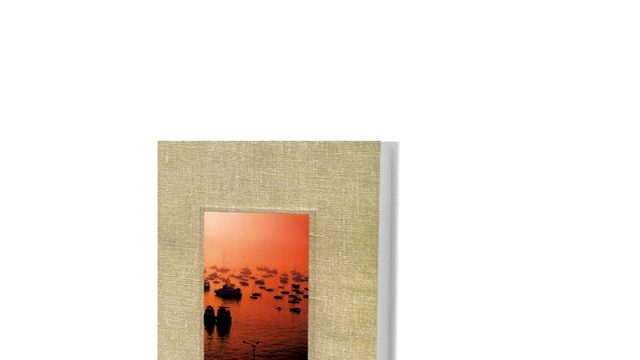It happens sometimes in the Mumbai monsoons. From the upper deck of a BEST bus or while navigating treacherous pavements, we catch a glimpse in a puddle. A fragment of a Gothic arch, the funky top of a coconut tree, a display of mops at a hardware store. The reflection is familiar but alien—recognisable as itself, but at the same time elusive and strangely beautiful. As is the Bombay one encounters in Amit Chaudhuri’s Friend of My Youth.
In this slim volume—part travelogue, part novel about an old friendship—Chaudhuri describes a Bombay uncannily like the Bombay I inhabit. Merely viewed from a different angle.
This is not a city of tourist landmarks and exotic encounters. Rather, it is a city thick with memories of distant crushes, unexpected meetings with schoolmates and new discoveries in old neighbourhoods. The book tells of trips to Joy Shoes to change a pair of slippers at the behest of wife or mother; aimless walks in the lanes behind the Taj, where unwashed hippies once reigned; meals at Britannia and Mahesh Lunch Home. (Accompanied by the inevitable crib that the Lonely Planet-toting tourists have driven up prices.)
Although Amit Chaudhuri is based in Kolkata, he grew up in Bombay. Bombay was where he suffered the tyrannies of school. The prison to which he inevitably returned after the joyous freedom of the summer holidays. The world that he and his parents left one day “as simply as sloughing off a skin”. “I knew this wouldn’t be my life,” he writes. “Malabar Hill, Cuffe Parade, the Taj. The streets were never really mine. I was going to be far away.”
Today, when he returns to the friends of his youth—Bombay and Ramu Reddy, an on-and-off drug addict who’s been his friend since Std 6—it’s with mixed feelings. He knows they will quarrel and get fed up with each other, as they always do. Even so, Chaudhuri waits for an opportunity to revisit. Not just to slip back into his reliable friendship with Ramu, but also to stumble upon moments from his boyhood.
A trip to a provisions store in Malabar Hill reminds him of the finger-sized Cadbury Milk Chocolates he once bought there. The 106 stop reminds him of bus rides to Elphinstone College that “put me in the middle of the sea-breeze”. A cup of tea at Sea Lounge in the Taj leads to a chat with an old-time waiter who recalls Chaudhuri’s parents with clarity and affection.
Chaudhuri traces his tale of friendship and nostalgia over a series of visits to Mumbai. During one trip, Ramu is away in Alibaug, at a rehabilitation facility—compelling the disappointed narrator to explore his past by himself. By the next trip, though, Ramu is back and the two friends resume their 40-year-old conversations and forays into the cities of the present and past.
“My childhood is trapped in these places,” Chaudhuri writes, about the power that a single awning or street corner in Bombay still manages to exert over him. “I can’t take it away with me. I re-acquaint myself when I return.”
This is a feeling that many Mumbaikars will recognise as they wander the city with the narrator. The sense of bumping into their own past and stumbling upon their own memories, as they turn the pages of this unusual, evocative book.




